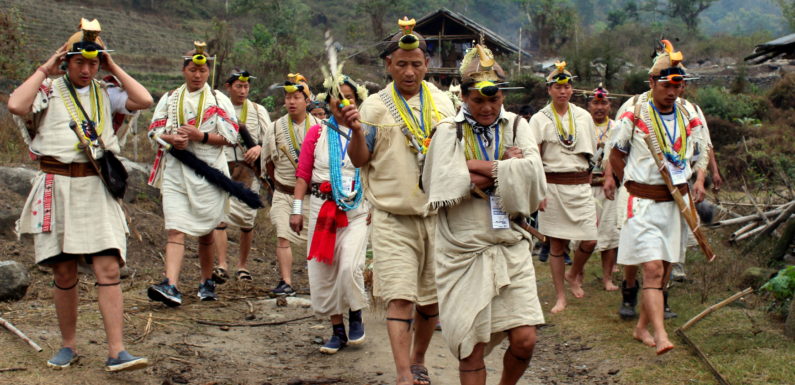
‘Come co-exist with nature’ was the motto of this year`s Yazali Nyokum Yullo Festival. As reality quivers, embrace everything new that makes way for a hypnogogic dreamscape of mystifying enigma.
The Panyor river along the village will lure you to its fringes with the assurance of taking you to a different world, whilst the festival ground plays host to a grand line-up of the finest tribal dance moves. A passion for Apong and Mithun`s meat flows throughout the stretch of Yazali with many stalls lining up to serve the best.
I was fortunate to be invited to the Yazali Nyokum Yullo Festival for its 50th Golden Jubilee Celebrations. I spend 6 days learning about the Nyishi tribe and its tribal cultural practices. In this post, I am attempting to give you a glimpse of the many ritualistic practices performed at Nyokum Yullo.
Who are Nyishis?
The Nyishi tribe is one of the major tribes inhabiting 7 districts of Arunachal Pradesh. They are the progeny of Abo Tani – a mythical ancestor similar to the Sun. The term ‘Nyishi’ comes from two words Nyi meaning man and Ishi meaning hills, the one who dwells in the highland. The Nyishis are the largest tribal community in Arunachal Pradesh along with Apatanis, Monpas, Adis and Galos.
Why Nyokum Yullo is celebrated?
Nyokum Yullo literally means `Coming together of people at one place for celebrations/rituals`. Nyokum Yullo is a pre-harvest festival which is celebrated in the month of February to invite the Goddess of rain to invoke her blessings. Farmers burn their fields and cut off trees for cultivation during this time for a good harvest in the next season. With the blessings of Nyokum Goddess, the Nyishis perform rituals to ward-off natural calamities like famine, drought, earthquakes and to save their crops from insects & animals. According to them, the wrath of God is the reason behind any misery caused to human beings and it can be evaded by performing rituals, offering sacrifices of domesticated animals like Mithun, goats and chickens. A truly fulfilled life is the one were perfect consonance is maintained between Man, God and Nature. The festival also highlights the fertility and growth of animal husbandry and human beings for years to come.
When Nyokum Yullo is celebrated in Yazali?
Every year from 23-27 February. Yazali Nyokum Yullo Festival was officially celebrated in the year 1967, before that each family in the village celebrated on their own to ward-off evil.
What happens during the festival?
During the 5-day celebrations, an array of autochthonous cultural activities like traditional hunting games, demonstration of Swla Dunam (zip lining) and ‘Sheph’ fishing practices are displayed. Mythological drama, bamboo dance, Pol wrestling (Nyerkaminam), pol climbing, hymns chanting by Shamans, performances by various tribes of Arunachal Pradesh are some of the major attractions. On the main day of the festival men and women wearing their traditional Eri and Par Ej robes dance around the altar holding hands and singing “Nyokum bo tapa debe” followed by the ritual sacrifice of Mithun. Darkha (Cleansing process) is performed on the last day of the festival along with ‘Amyemch Hikanam’ (grain measurement to predict future of prosperity and finance), followed by the retreat of priests.
Watch Festival celebrations at Nyokum Yullo by Jay Mishra
After the celebrations are over, the Nyishi people don’t go to their fields for 3 to 4 days, no vehicle can move or cross the village, nothing will be plucked off the trees. The reason behind these restrictions is simple – don’t disturb nature.
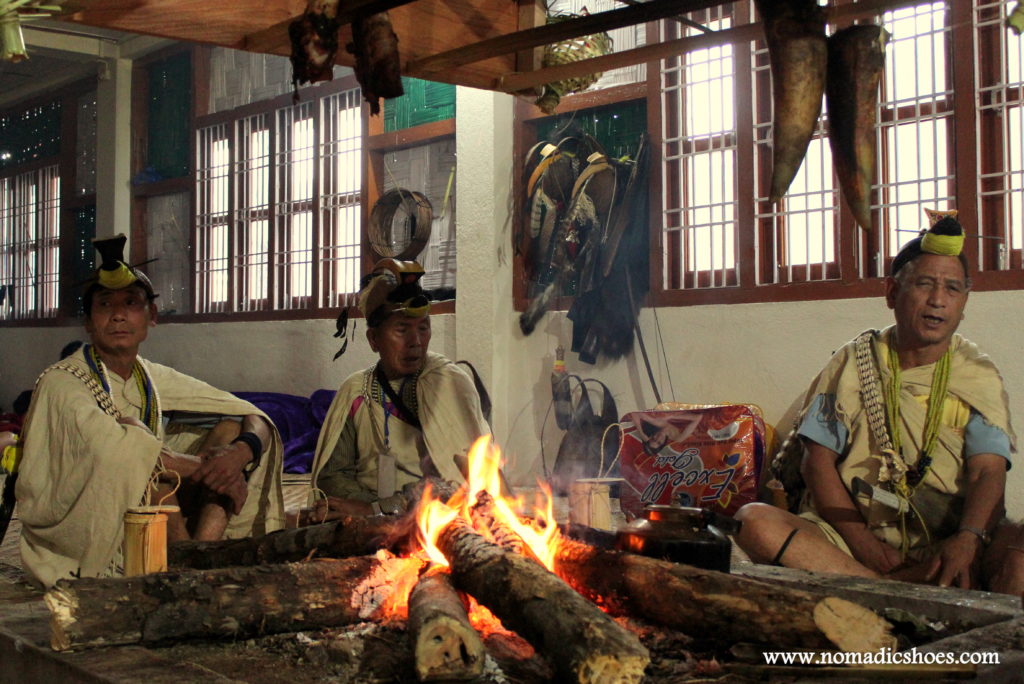
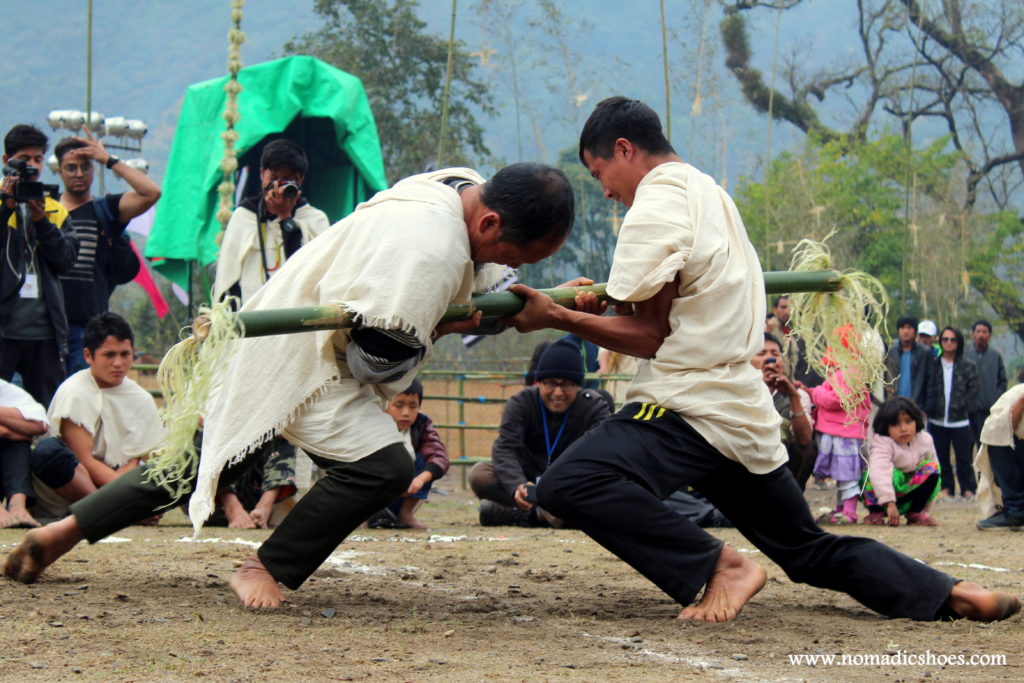
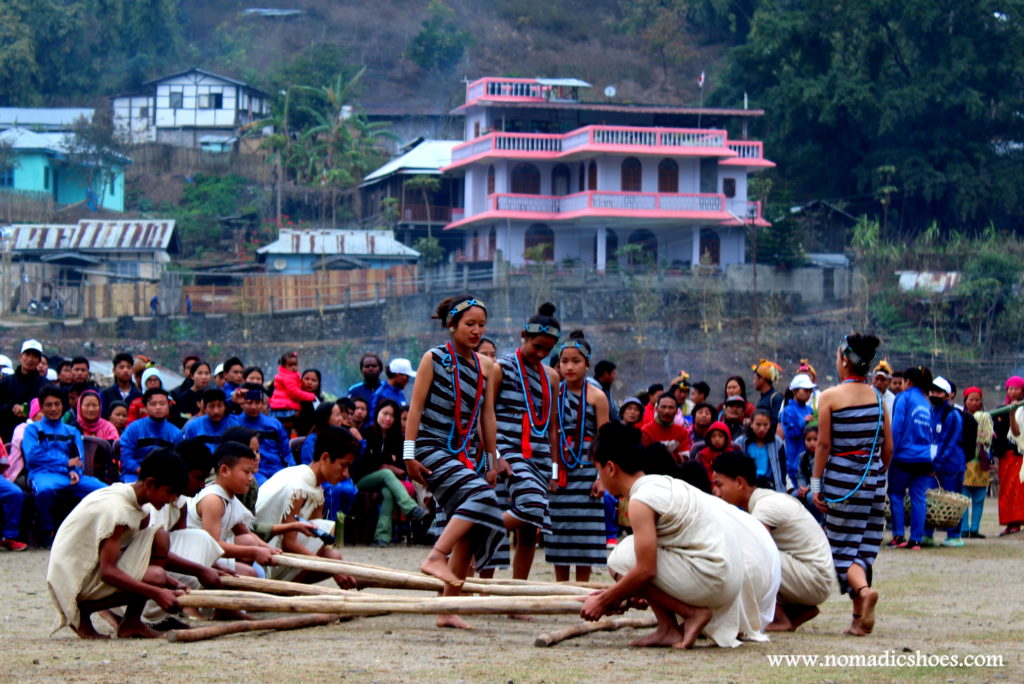
Why should I attend Yazali Nuokum Yullo?
If you are a photographer, then Yazali Nuokum Yullo is a feast for your eyes & soul. If you are a traveler/adventurer then experience the tribal life by staying in a Nyishi house, taste Apong (millet wine), interact with the locals and learn about their sustainable practices. Nyishis are warm and friendly, they will make you feel at home and tell you everything you want to know about their tribal practices. Experience their unique heritage and satisfy your cultural curiosity.
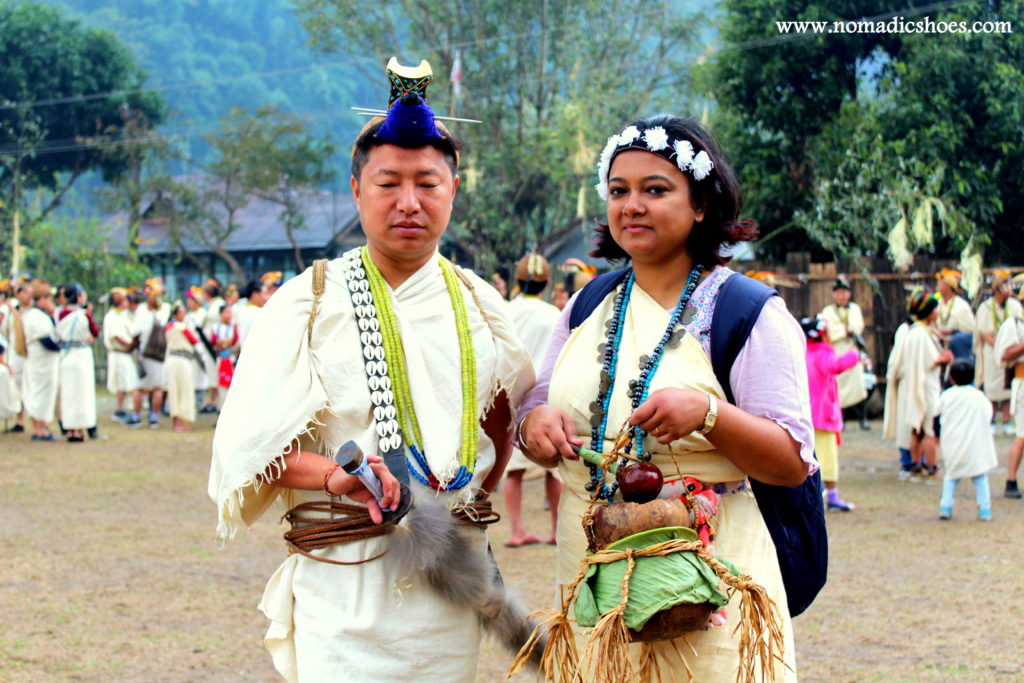
How to reach Yazali?
Option 1: Fly down to Guwahati, take Volvo bus till Paltan bazar for the railway station and then take the Donyi Polo Express train at 9.20 PM for Naharlaun (Itanagar). Then take a shared Sumo for Yazali, which is around 2 hours away from Itanagar.
Option 2: Take a direct train – Naharlaun Arunachal AC SF Express from Delhi to Naharlaun (Itanagar). Then take a shared Sumo for Yazali, which is around 2 hours away from Itanagar.
Do I need an Inner Line Permit?
Yes, you require a permit to visit Yazali. Indians need an Inner Line Permit which is valid for 15 to 30 days and foreign nationals need Protected Area Permit to enter Arunachal Pradesh. The best way to get your permit is to do it online. You can also get it done from Arunachal Bhawan in New Delhi, Guwahati and at Naharlaun railway station.
For detailed information about ILP and PAP, read my post on Inner Line Permit:
https://nomadicshoes.com/2017/05/24/inner-line-permit-for-north-east-india/
Where to stay at Yazali for Nyokum Yullo?
- Anya Homestay: 9856077860
- Ann Homestay: 9862283058
- Yaza Homestay: 8014012303
- Exotic Resort
You can also contact Chukhu Mama at 9862830513 for accommodation during the Yazali Nyokum Yullo Festival.
Anything else I should know about Nyokum Yullo & Yazali?
- If you are a vegetarian then be prepared to survive on fruits and boiled food. Carry ready-to-eat food packets like Poha, Rajma, dal etc.
- Carry your rain gear as it will most definitely rain.
- There are some fast food joints where you can get thalis and parathas in the main market. One such joint is Star Fast food, the owner also made chicken curry for us on order.
- Carry a print out of your Inner Line Permit.
- Ask people before you click their pictures.
- They serve Mithun’s meat, might be a good idea to find out what is served before eating.
- Take it slow while drinking Apong, it gives you a kick instantly 😉
You might also want to read:
What else can I see or do around Yazali?
Most people will go to Ziro for the music festival, but I think it is always better to explore a place during the off-season. Explore the region for its cultural heritage and rich tribal history. Stay in Hong village, interact with the Apatani Tribe, see the self-made Shiva Linga at Sidheshvar Nath Temple, visit Talley Valley Wildlife Sanctuary or trek to Dolo Mondo. Another trek that you can do near Yazali is Takampassa Trek.
Alternatively, you can just sit by the Pare river, visit a local family at Pitapool along the Panyor and explore Itanagar.
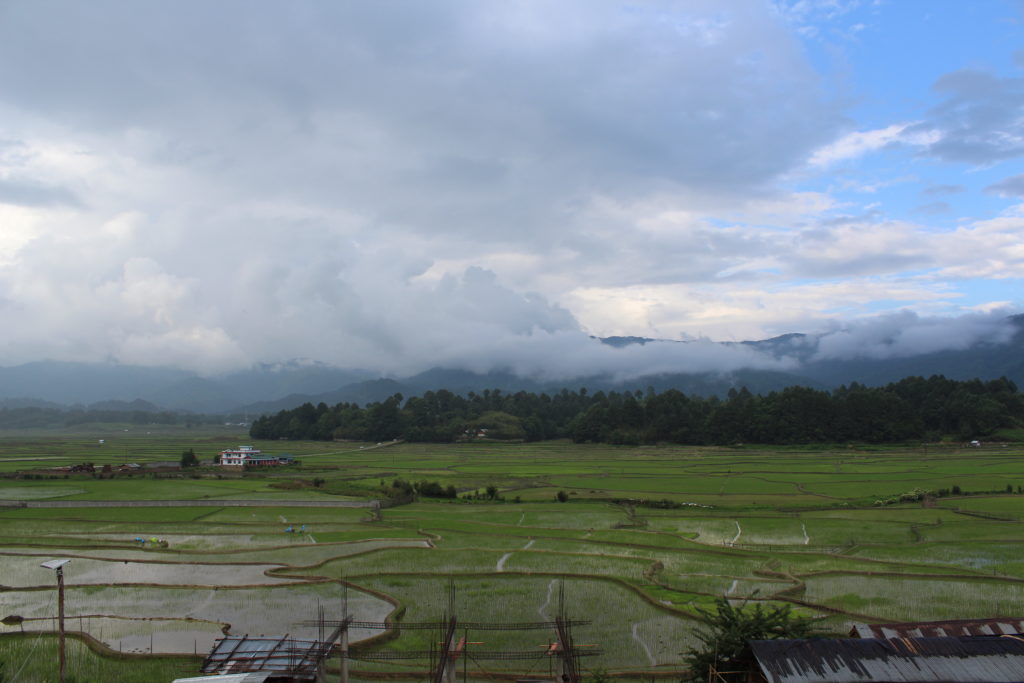
Yazali Nyokum Yullo is much more than a harvest festival, it is a land of self-discovery where you push your limits and connect with nature in its rawest form. Whether dancing around the bamboo altar, chanting hypnotic hymns, feasting at the dining mass, learning hunting skills from the tribals or simply expanding your mind in realms that are beyond our understanding: this is definitely a festival like no other. Write to me at suman@nomadicshoes.com for any queries or assistance.
Hope you visit the festival next year.
Paya Lincho!!!

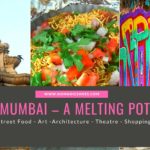

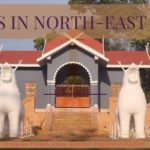
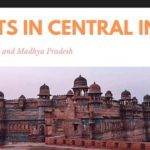
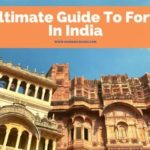
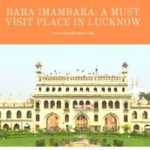


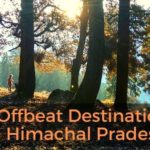

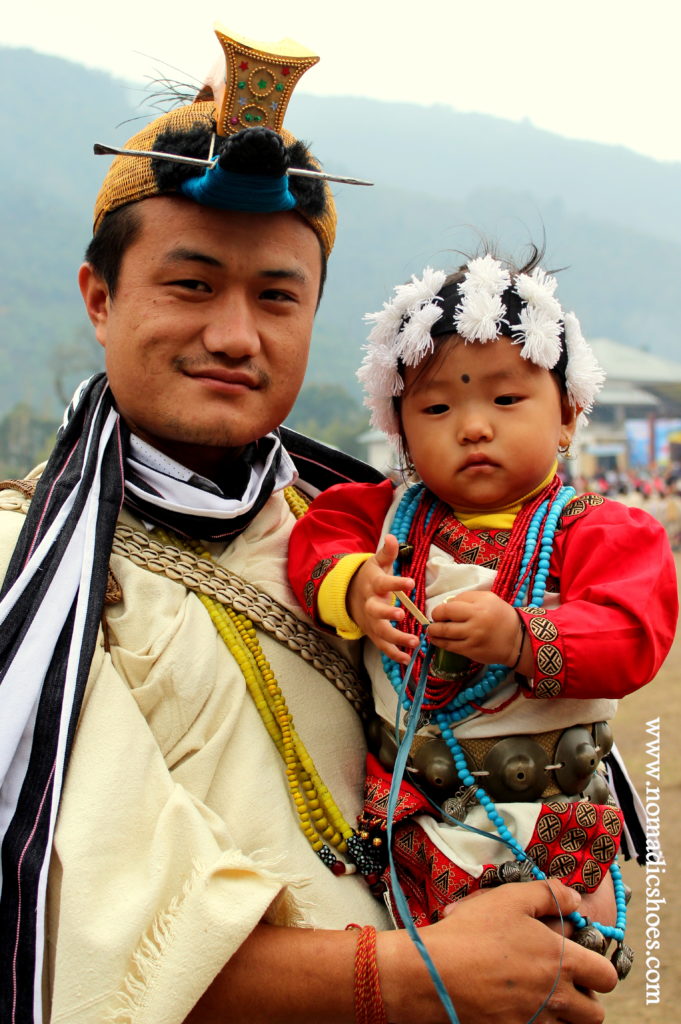
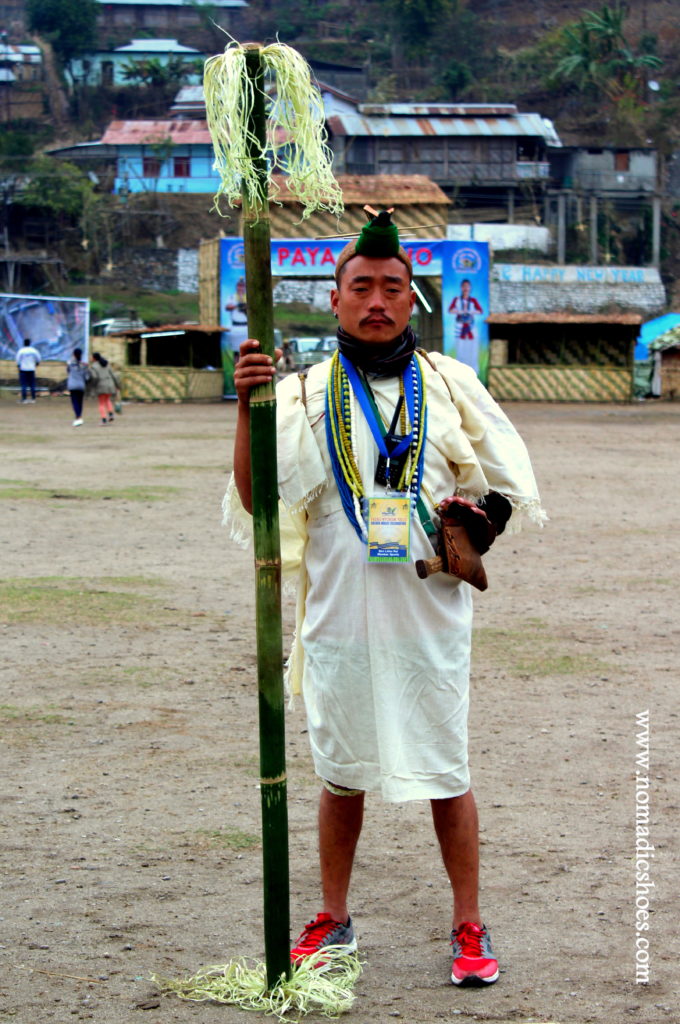
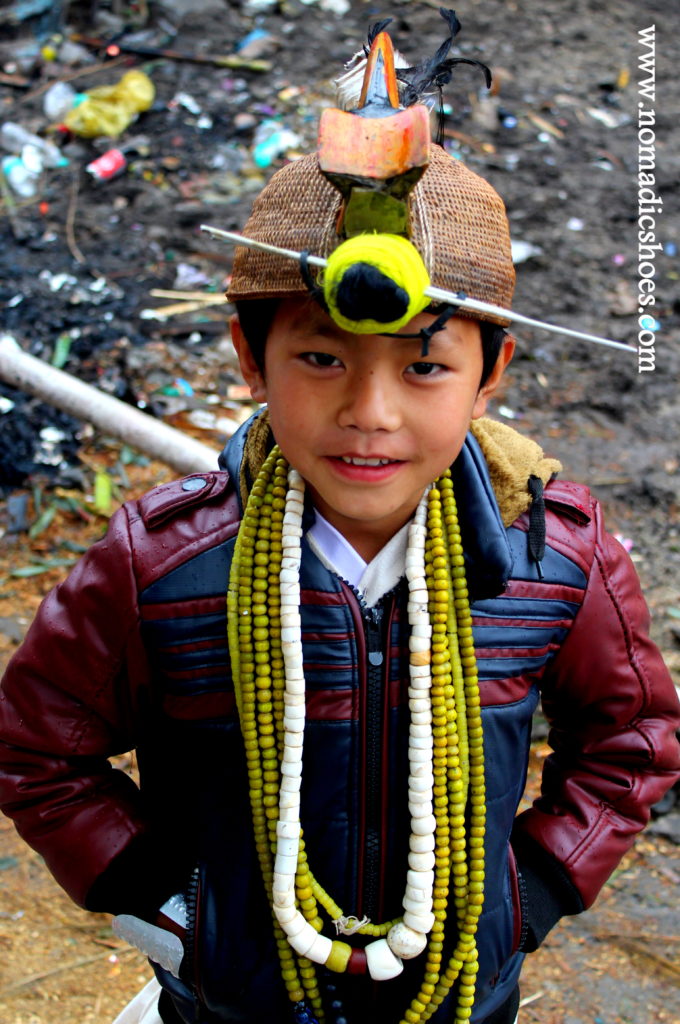
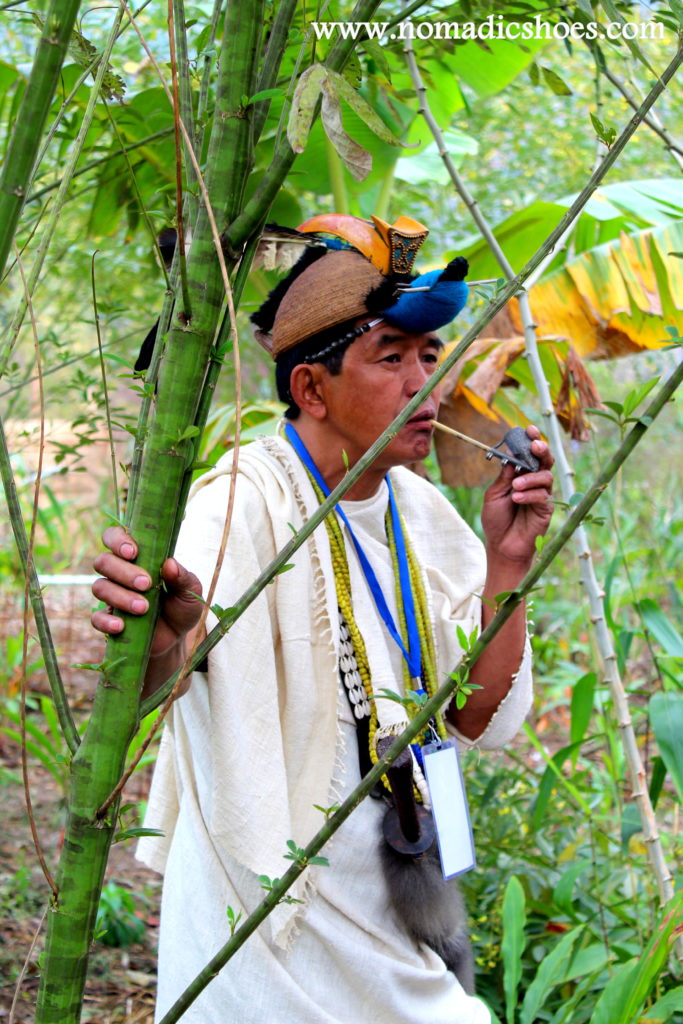
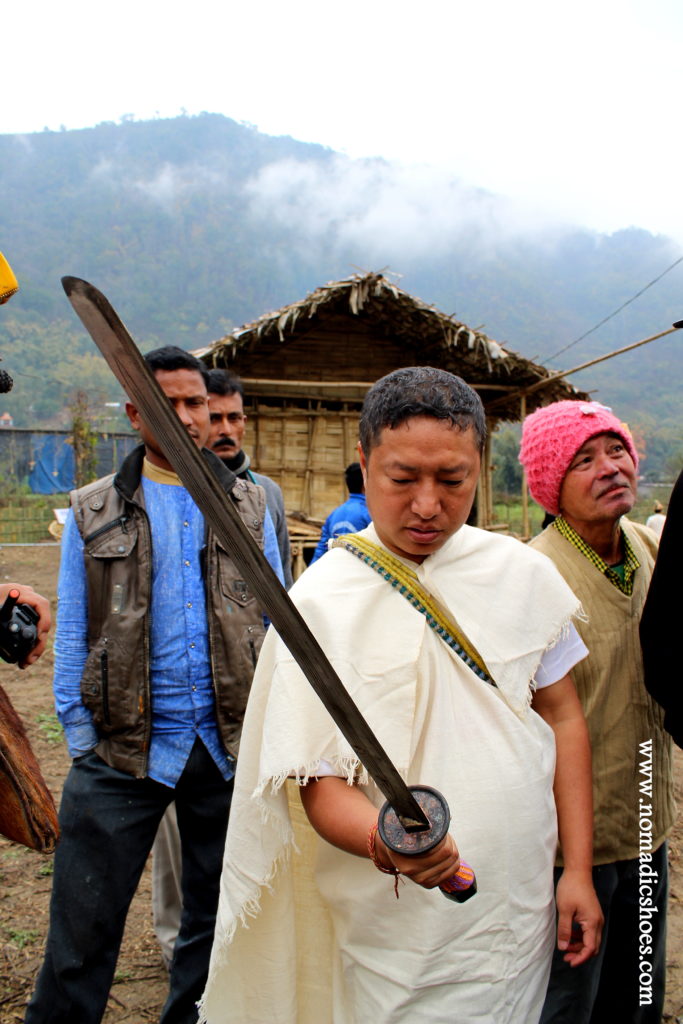
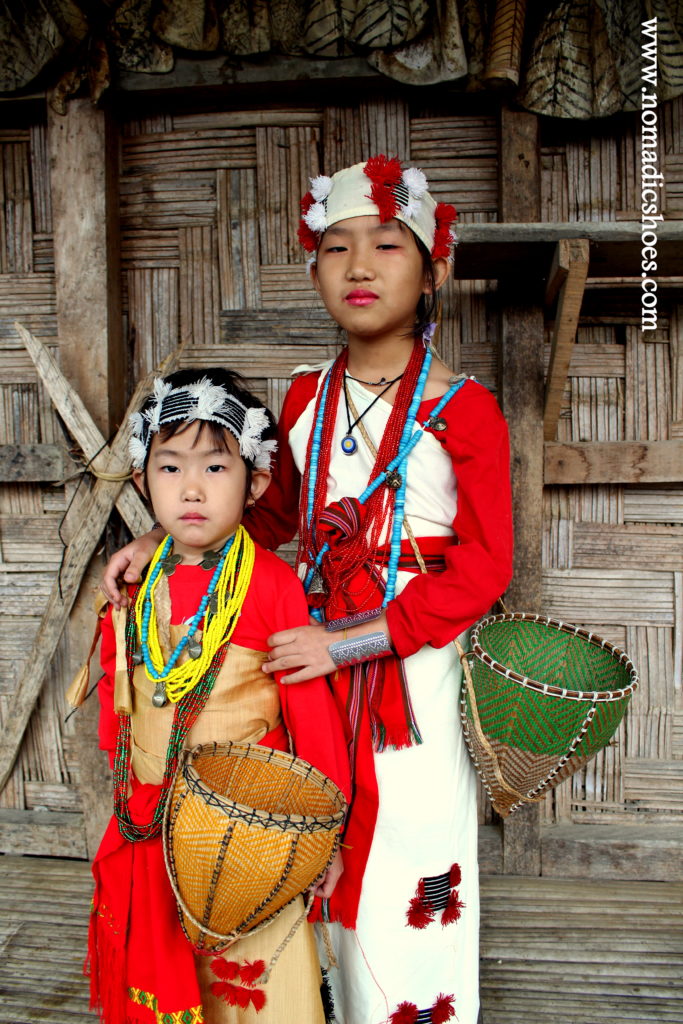
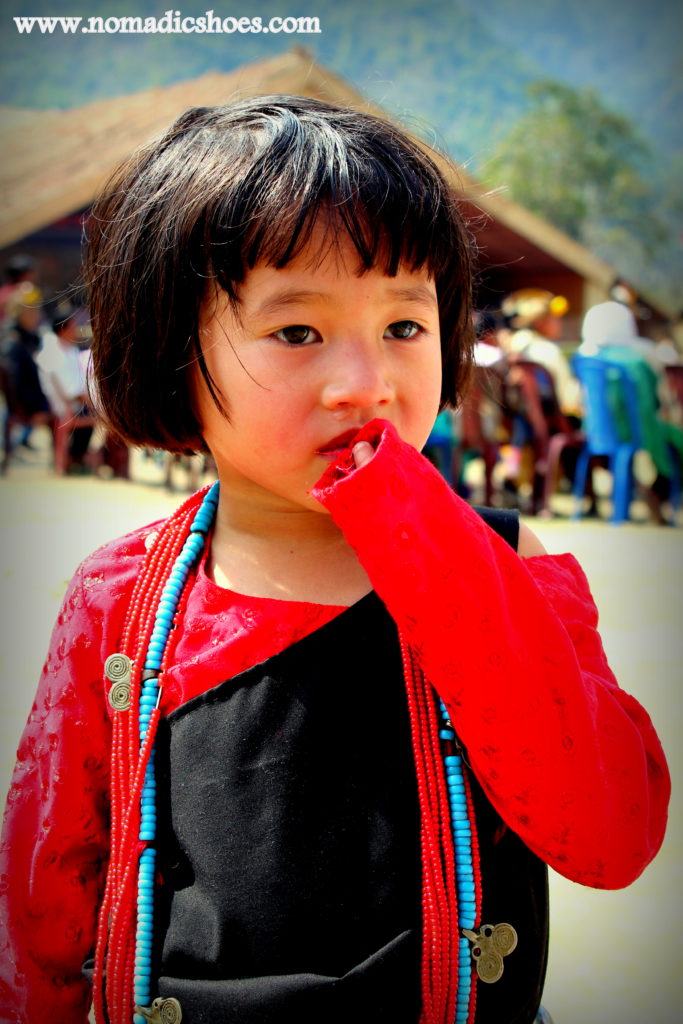
Mesmerizing..ser seriou wanted to attend the festival after reading your post.
Do visit next year if possible
It’s so interesting learning about new cultures! This festival sounds like a lot of harvest time festivals that are celebrated around the world! It’s great that the Nyishi people are so welcoming of outsiders too!
It was one of its kind of experience. Very rare to find tribal people that are so welcoming to the outsiders.
I legitimately had never even heard about this, but thanks so much for bringing it to my attention. It’s always great to learn about something new!
Thank you for reading the post. We all learn new things every day. 🙂
This is an ultimate guide indeed! You answered all the questions in my mind as I read your article. I love their traditional costumes. I wish I could witness it in person.
Thank you Karla, do visit India sometime and witness this.
I love it! This kind of festivals and people at remote places is what I look for in travel blogs! Would love to get there with my camera
A very nice festival. I would like to take part in it 🙂 Maybe someday I will be able to go there.
I absolutely love your photos. It is nice to see how people maintain their cultural values and try to promote them to the outside world. I would love to visit this festival, it looks like such an amazing way of learning more history, culture and just having fun in the process 🙂
Jules@thetravelingtulip
http://www.thetravelingtulip.eu
I’ve never heard of the Yazali Nyokum Yullo Festival before, but it looks and sounds absolutely fascinating! I’ve yet to visit this side of the world, but hoping to one day, so will add this to my ever-growing bucket list x
This is an amazing festival, I’ve never heard about it! Great photography opportunities indeed! I also read that it is possible to stay in the village and interact with the tribe, such a great cultural experience!
Looks really interesting, I love to explore new cultures and how they live, their festivals and rituals. Amazing post, thanks for sharing! 🙂
wow..ur pictures are so stunning..i never heard of Nyishi tribe but they look sos colorful..i would love to for there one day especially since its in my home country..thanks for sharing this..very beautiful and unique article..
What an interesting looking festival! I’ve never heard of this place but I bet it’s great to photograph and watch the action too. Thanks for sharing this with those of us who are yet to visit India!
This is a great post! It is clear you are an expert on the area, and that you immersed yourself in the culture and rituals of the place. I appreciate the photos and the very useful tips.
Very nicely told,one gets tempted to visit
Its a great experience to be there. I encourage you to go next year 🙂
Great..Very insightful post 😊.
Thanks Alok 🙂
Nyokum Festival at large is slowly becoming commercialised in capital region. But in the rural part of the country still the Nyokum Festival has it’s root in rituals and shamans.
And then this piece of write up is well crafted illustrated informations for everyone who would like to know, explore and enjoy the Nyokum Festival of the Nyishi as well as to reach Yazali.
Keep exploring, keep sharing.
I agree but the experience we had in Yazali in unmatchable
this is very useful and informative post who want to attend this festival.I m regretting not attending it
Lovely article
Do attend it next year 🙂
Awesome. Lovely article. You have covered all the details. I could imagine and visualise all through ur article. Always love to read the way you write. Thank you for sharing your beautiful experience
Thank you Sowmiya for your kind words 🙂
Such a lovely write up – I see the site has undergone a makeover and What a MakeOver I must say 🙂 Thanks to you, I was able to be part of this festival 🙂
Thanks Richa, yes the Husband helped with the site.
This is superb. It gives all info under a roof’. Really amazed by this vibrant festival n cheerful spirit of the Nyishis
Exquisitely crafted, Suman 🙂 Such an exhaustive article. Lovely clicks! It was truly an awesome experience to attend this one of a kind tribal festival, more so because of the beautiful company of you guys. If I have to define my experience in just one sentence, I’d say – Ultimate saturation of senses. Keep exploring and keep writing!
A perfect guide for anyone looking to explore the region or attend the festival. Love the detail and the way you’ve compiled all the information.
Very useful and informative post. Thank you ☺